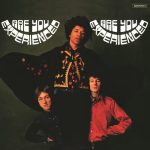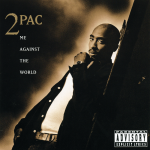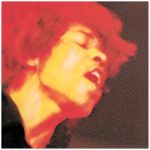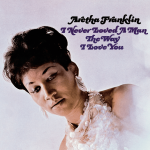
Category: Album
Title: In Utero
Artist: Nirvana
Released: September 21, 1993.
Genres: Alternative Rock, Grunge, Punk Rock
Album Background
Release Date and Label
In Utero was released on September 21, 1993, by DGC Records. It served as the highly anticipated follow-up to the immensely successful Nevermind and marked a sonic departure for the band.
Artist Context
At the time of In Utero‘s release, Nirvana was grappling with the pressures of fame, particularly frontman Kurt Cobain. Following the global success of Nevermind, Cobain was disillusioned by the mainstream attention and wanted to reclaim a rawer, less commercial sound. The album reflected the band’s desire to return to their punk roots and challenge their audience’s expectations.
Concept and Inspiration
Themes and Messages
In Utero addresses themes of pain, alienation, and introspection. Cobain delves into his personal struggles with fame, addiction, and health issues. Tracks like “Heart-Shaped Box” and “Rape Me” explore the conflicts between his public persona and private life, while songs like “All Apologies” reflect a sense of remorse and detachment.
Inspiration
The album was heavily inspired by Cobain’s emotional and physical turmoil during this period. The desire to reject the polished sound of Nevermind and create something more raw and abrasive played a significant role in shaping the record. Musically, the band looked back to their punk influences and sought a more aggressive, unrefined sound.
Writing and Recording Process
Songwriting and Recording
Most of the songs for In Utero were written by Kurt Cobain between late 1992 and early 1993. He aimed to create an album that was deliberately less accessible than Nevermind. The album was recorded in February 1993 at Pachyderm Studio in Cannon Falls, Minnesota, with producer Steve Albini. The recording process was quick, with most tracks recorded live to capture the raw energy of the band’s performances.
Notable Collaborations
Producer Steve Albini was chosen for his reputation of working with underground punk bands and for his minimalistic approach to recording, which aligned with Cobain’s vision for a more organic sound. R.E.M.’s Michael Stipe was also an influential figure for Cobain during this period, although he did not directly contribute to the album.
Production Details
Producers and Sound
- Producer: Steve Albini’s contributions were vital in shaping the album’s sound. Known for his “hands-off” approach, Albini allowed the band to record quickly with minimal studio interference, resulting in a much rawer and more aggressive sound compared to Nevermind.
- Sound and Musical Style: The album blends elements of punk rock, grunge, and noise rock. The production is intentionally rough, featuring distorted guitars, heavy drum sounds, and Cobain’s raw, unfiltered vocals. The band sought a stripped-back aesthetic, embracing a more abrasive sound that contrasted with their previous album’s polished production.
Track-by-Track Analysis
-
Track Listing:
- “Serve the Servants”
- “Scentless Apprentice”
- “Heart-Shaped Box”
- “Rape Me”
- “Frances Farmer Will Have Her Revenge on Seattle”
- “Dumb”
- “Very Ape”
- “Milk It”
- “Pennyroyal Tea”
- “Radio Friendly Unit Shifter”
- “Tourette’s”
- “All Apologies”
-
Key Tracks:
- “Heart-Shaped Box”: The album’s lead single, this track became one of Nirvana’s most iconic songs. Its haunting melody and cryptic lyrics convey feelings of entrapment and desire, with Cobain reportedly dedicating the song to his relationship with Courtney Love.
- “Rape Me”: A confrontational song that tackles issues of power, violation, and media exploitation. Cobain intended it to be a statement of defiance, and the song sparked controversy upon release.
- “All Apologies”: A more introspective track, “All Apologies” reflects Cobain’s feelings of regret and disconnection. It has a melancholic tone and serves as the emotional closer to the album.
Awards and Nominations
Awards and Nominations
In Utero received critical acclaim upon its release. It was nominated for Best Alternative Music Album at the 1994 Grammy Awards, and “Heart-Shaped Box” won Best Alternative Video at the 1994 MTV Video Music Awards.
Sales and Charts
The album debuted at No. 1 on the Billboard 200 chart and has been certified 5x Platinum by the RIAA. Despite being less commercially accessible than Nevermind, In Utero was still a major commercial success, selling millions of copies worldwide.
Impact and Legacy
In Utero is often hailed as a defiant artistic statement. It cemented Nirvana’s legacy as a band willing to take risks, even at the height of their fame. The album’s raw sound and intense themes influenced many bands within the alternative and punk rock scenes. Cobain’s songwriting continued to resonate with future generations, and In Utero is considered one of the most important albums of the 1990s.
Conclusion
Summary
In Utero marked a deliberate shift for Nirvana as they sought to reject the commercialism they had unwittingly embraced with Nevermind. It’s a complex, raw, and emotional record that remains one of the band’s most respected works.
Final Thoughts
In Utero stands as a testament to Kurt Cobain’s genius and his desire to push artistic boundaries. While not as polished as its predecessor, the album’s raw emotion and abrasive sound made it a powerful and lasting statement in the band’s catalog and in rock history.



















Leave a Reply